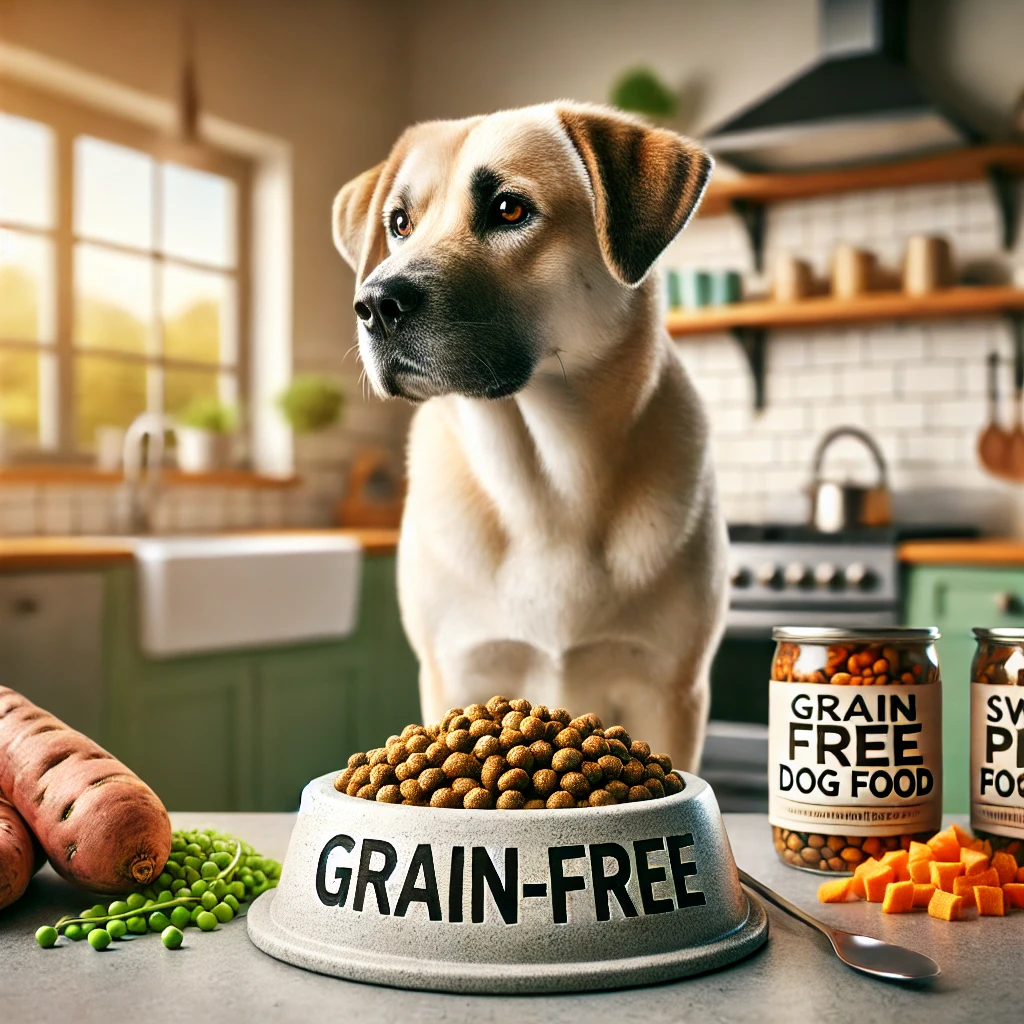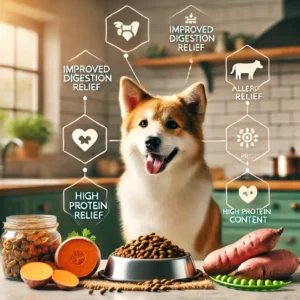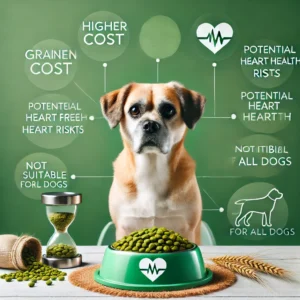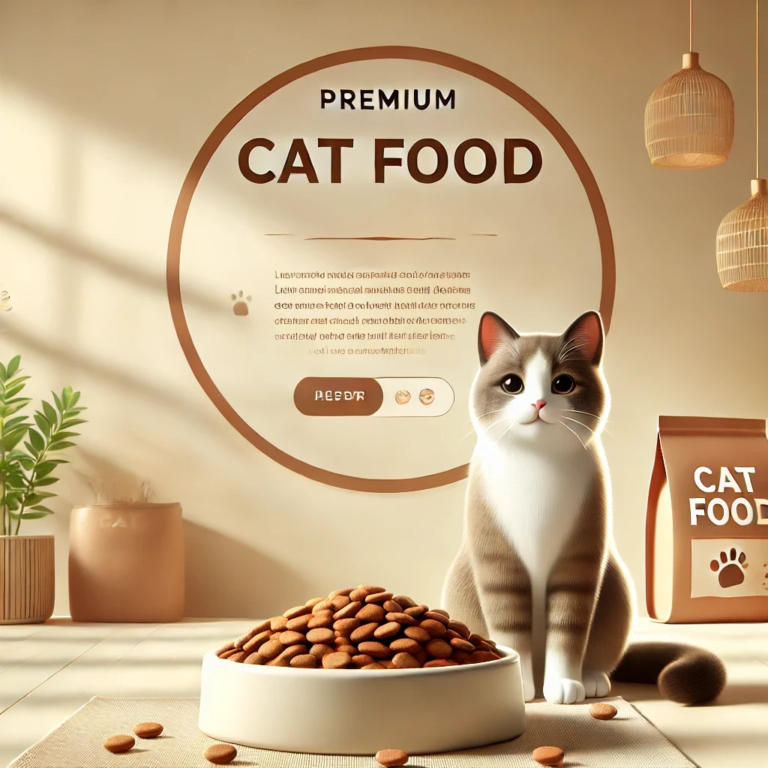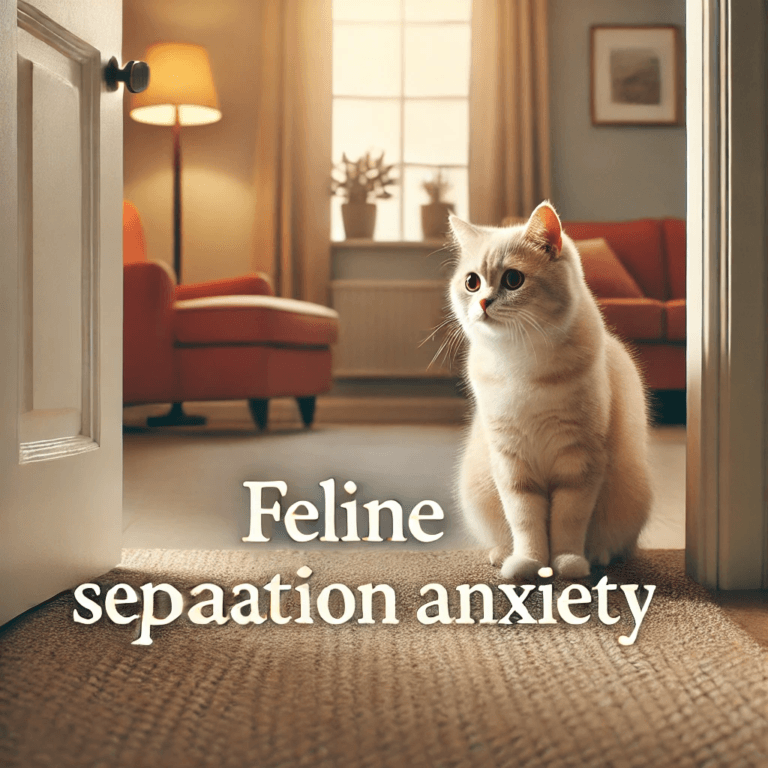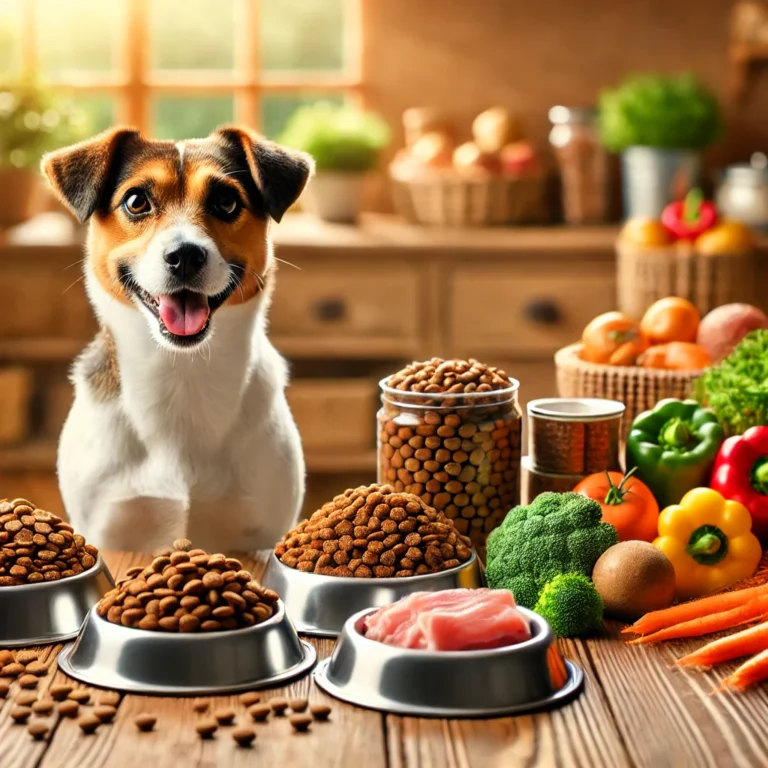What are the best grain-free dog food options?
Why Choose Grain-Free Food for Dogs?
Grain-free food is increasingly popular among dog owners who want diets that align with natural eating habits. Many believe that Grain-free food can improve digestion and reduce allergies in dogs. Understanding the benefits and considerations of grain-free food will help you choose the best options for your dog.
Benefits of Grain-Free Food
Choosing grain-free food for your dog can provide several potential health benefits, particularly for dogs with allergies or sensitivities. Here’s why grain-free food might be the right choice:
- Improved Digestion: Grain-free food typically uses ingredients like sweet potatoes and peas, which are easier for some dogs to digest.
- Allergy Relief: Dogs with grain allergies may experience relief from symptoms such as itching and skin irritation when switching to grain-free food.
- Higher Protein Content: Quality grain-free foods often emphasize animal proteins, which support muscle health and energy.
While these benefits are promising, not every dog needs grain-free food. Consulting with a veterinarian can help you decide if grain-free food is appropriate for your dog.
Top Brands of Grain-Free Food for Dogs
When selecting grain-free food, some reputable brands stand out for their quality ingredients and balanced nutrition:
1. Blue Buffalo Freedom Grain-Free Food
Blue Buffalo’s Freedom line is a leading option in grain-free food. This product line includes proteins like chicken, lamb, and fish, offering a variety of flavors to suit your dog’s taste.
2. Taste of the Wild Grain-Free Food
Taste of the Wild uses unique proteins, such as bison and venison, and is highly recommended as a grain-free food option that supports high protein and fiber levels for digestive health.
3. Merrick Grain-Free Food
Merrick offers grain-free food with deboned meat as the primary ingredient. Varieties like Texas Beef and Sweet Potato ensure balanced nutrition for active dogs.
Potential Drawbacks of Grain-Free Food
While grain-free food provides benefits, there are potential drawbacks to consider:
- Higher Cost: Grain-free food often comes at a premium, which may impact long-term budgets.
- Heart Health Concerns: Some grain-free foods use legumes or potatoes, which have been linked to canine dilated cardiomyopathy (DCM). Consult a vet if you have concerns about your dog’s heart health.
- Not Necessary for All Dogs: Grain-free food is often marketed for all dogs, but only some require it. Dogs without allergies or sensitivities may do well on regular diets.
How to Choose the Right Grain-Free Food
Here are some tips for selecting the right grain-free food for your dog:
- Check Ingredients: Quality grain-free food will list animal protein as the first ingredient and avoid fillers.
- Consider Your Dog’s Age and Size: Select grain-free food specifically formulated for your dog’s life stage and size.
- Monitor Health Changes: After switching to grain-free food, observe your dog’s coat, energy levels, and digestion to ensure it suits them.
Each dog has unique dietary needs, so finding the right grain-free food may require some experimentation. Consult your veterinarian to determine the best choice.
Conclusion: Is Grain-Free Food Right for Your Dog?
Choosing grain-free food can benefit dogs with specific dietary needs. However, it’s not the best choice for every dog. Understanding the benefits and potential risks allows you to make an informed decision. With many quality grain-free food options available, you can find a formula that keeps your dog healthy and happy.
